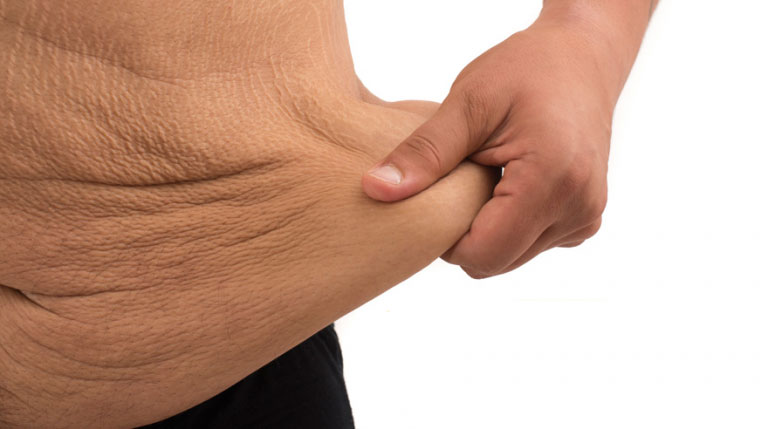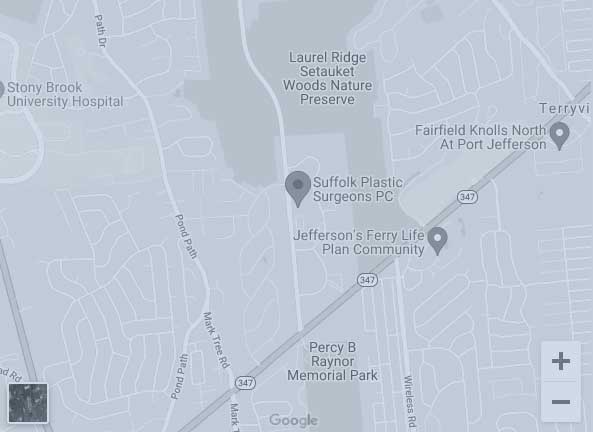 Loose skin after a dramatic weight loss can affect almost every part of the body. This problem happens after losing a large amount of weight (100 pounds or more) in a small amount of time. It can happen when the weight loss is through diet and exercise, but loose skin happens more often to bariatric or gastric bypass surgery patients. With a slow, gradual weight loss, a person’s skin elasticity snaps back into place much easier, shrinking back down as the fat is slowly lost. But when too much is lost so fast, the skin’s elasticity doesn’t have the time to catch up.
Loose skin after a dramatic weight loss can affect almost every part of the body. This problem happens after losing a large amount of weight (100 pounds or more) in a small amount of time. It can happen when the weight loss is through diet and exercise, but loose skin happens more often to bariatric or gastric bypass surgery patients. With a slow, gradual weight loss, a person’s skin elasticity snaps back into place much easier, shrinking back down as the fat is slowly lost. But when too much is lost so fast, the skin’s elasticity doesn’t have the time to catch up.
After bariatric surgery, patients normally will be healthier and have a boost in self-confidence, greater mobility, relief of symptoms and lower risks of weight-related illnesses. They also will see that their inelastic skin is stretched and hangs over their smaller body. Suffolk Plastic Surgeons, P.C. offers post-bariatric plastic surgery to tighten, lift and contour sagging areas of skin for a better appearance. The patient may choose to treat the arms, breasts, abdomen, buttocks, thighs, neck, face or other areas.
Procedures include:
• Arm Lift (Brachioplasty)
• Breast Lift
• Abdominoplasty (Tummy Tuck)
• Buttock Lift
• Thigh Lift
Almost every part of the body can be affected by loose skin after weight loss. The most common area that people are concerned with is the stomach. An overhanging apron, called a “pannus,” causes a fold of skin on the front of the abdomen. Besides preventing clothes from fitting well, a pannus can cause symptoms of rash and skin irritation. These symptoms can become worse in hot weather. An extremely large and heavy pannus can interfere with exercise and even normal activities, as well as cause lower back pain.
While the belly is a common area for excess skin, rashes and irritation can also happen in folds of skin under the breasts, and on the thighs and back. Excess skin on the upper arms can be annoying to many patients. Skin rashes aren’t as common in this area, but the hanging skin may cause discomfort and embarrassment during physical activity.
According to a recent study published in the journal Plastic and Reconstructive Surgery, people who have had weight-loss surgery and later had the excess skin removed, were less likely to gain weight back than those who had the surgery but did not undergo a post-bariatric procedure. The study followed 100 patients who had lost about 100 pounds each after bariatric surgery. Those who did have the resulting excess skin removed only gained back around 13 pounds while those who did not have any cosmetic procedures gained back around 50 pounds.
The best time to consider post-bariatric surgery is when you are as close to your goal weight as possible and are weight stable. This typically happens around 12-18 months after the gastric bypass surgery. Patients should be at a stable weight for at least 3 months before having surgery. Contact Suffolk Plastic Surgeons, P.C. today at 631-364-0333 to schedule a complimentary consultation and see if you are a candidate for post-bariatric surgery!






